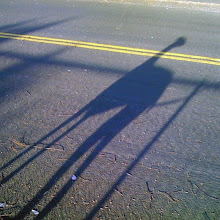Meet the Mets
The small number of pro athletes with the guts to voice their political opinions are right-wingers; even fewer are progressives willing to act on their principles. After the U.S. invaded Iraq, Delgado decided he wouldn’t stand on the field with his Toronto teammates during daily renditions of “God Bless America.” He disagreed with the war, but he also disliked the way baseball was being used for political purposes. Delgado didn’t call any press conferences to announce his boycott—just as he never publicized donating $100,000 to an FDNY widows and children’s fund several days after September 11—and no one noticed his well-timed absences until July 2004, when a story in the Toronto Star detailed Delgado’s political opinions. Boos and death threats rained. Baseball commissioner Bud Selig harrumphed that he wanted to meet to discuss the situation. Delgado rolls his eyes when asked if Selig followed through. “No,” he says. “What’s he gonna tell me?”
He has no regrets—“You can’t make everybody happy. We live in a so-called democracy”—but as he read stories that misrepresented his beliefs and branded him as unpatriotic, he learned a powerful lesson. “It’s amazing how the media can get a story out there and people will believe it,” Delgado says. “Blind. They just take it to the bank like their payroll check. More than ever, I realized we as a society need to educate ourselves and come to our own conclusions before believing what somebody else will say.”
Does he feel vindicated by the increased unpopularity of the war? “No, no,” Delgado says. “If the war had become popular, would that mean I’m wrong? You believe what you believe, and you stick by your guns, and that’s it.” While nothing has changed to alter Delgado’s ranking of Iraq as “the stupidest war ever,” he continues to support the soldiers sent to wage the fight, especially those he knows firsthand. A son of Delgado’s friend and business associate Robert Rodriguez is in Iraq with the U.S. Army, and Delgado keeps in touch by e-mail. “I think he’s in Baghdad right now,” Delgado says. “Physically, he’s been okay. But it’s still scary. It’s not fun.”
Pro athletes are considered intellectuals if they read books without pictures. Lately Delgado has been devouring Confessions of an Economic Hit Man, a nonfiction best seller by John Perkins. “He goes into some countries that have a lot of resources, and he says, ‘Wow, we can really develop your country, blah, blah, blah,’ and they paint a pretty picture—‘We can build you a huge airport, a huge electric plant, whatever, we’ll get you financing’—and the next thing you know, it’s a big scam. Now that country’s in debt to the United States, and the United States goes in and says, ‘You’re in debt to us, can we get some of your oil, some of your power, some of your resources?’ It’s pretty interesting.”
Just think how happy we'd be if your typical journalist could come up with the insightful simplicity of "We live in a so-called democracy." And that typical journalist probably wouldn't bat clean-up, too.


0 Comments:
Post a Comment
<< Home